Physician, Dr. Ashley Denmark is a St. Louis, MO native who’s proven to be a powerhouse in the world of medicine. She’s one of the first African American females to graduate from the Edward Via College of Osteopathic Medicine in South Carolina and the first African American female family medicine physican at Missouri Baptist Medical Center since it’s opening in 1884. If there’s anyone we’re going to obtain advice from during our current pandemic, it’s Dr. Ashley Denmark. We caught up with her to discuss COVID-19, how black lives are being disproportionately affected by it, and much more!
What was it about medicine that intrigued you to get into the career field?
My childhood battle with asthma inspired me to want to become a doctor. As the daughter of a carpenter, I grew up in a predominantly underserved black community in St. Louis. We didn’t have an abundance of access to primary care and would have to travel to 35-40 minutes to see a doctor. Often, by the time I reached the clinic, I was in a critical state due to uncontrolled asthma; even needed ICU care at times. I was always mesmerized by my pediatrician’s ability to heal and restore breath to my body. Ever since then, I knew I wanted to be in primary care and take care of my community as my pediatrician did for me.
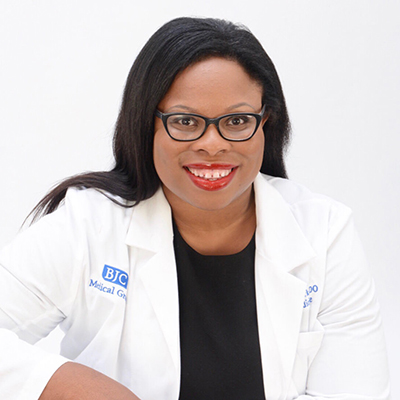
photo courtesy of Dr. Ashley Denmark
Why do you believe that black healthcare professionals need to be at the top of the healthcare chain?
It is a well-known fact that there is a shortage of black doctors. Currently, only 2% of doctors are black females. To bring it all the way home, I made history at my hospital in St. Louis, Missouri, as the FIRST black female family medicine physician in its 130+ year history. In 2020, this should not be our narrative. We need more black doctors to have people at the table to be in the decision making positions to help create a doctor workforce that reflects the diversity of our society. This pandemic has ripped the covers off the health disparities that disproportionately affect black communities. Research shows that black doctors are more likely to serve in underserved urban communities, which would help erase the health disparities that plague these vulnerable areas. Once we get more black bodies in white coats, then they can work there way up to executive hospital leadership. Our presence in the boardroom will give us a voice at the table to create policy and programming to enact the change needed to eliminate health disparities in our community.
With our current global pandemic, how are black lives being disproportionately affected by it?
Covid19 shows no bias on who it infects, yet, disturbing stats from Detroit, Washington DC, Chicago, and Louisiana, are revealing blacks are dying at a higher rate than any other ethnic group. Historically, racial health disparities, poverty, food deserts, and education inequity limiting upward mobility have always plagued the black community disproportionately. Rather than tackle these problems and find solutions, black families are often left to “bootstrap” their way through life. Ultimately, this has allowed for chronic conditions such as hypertension, diabetes, heart disease obesity, and asthma to ravage our communities at an alarming rate. These chronic conditions create opportunities for complications from covid19 and, thus, lead to higher mortality rates amongst Black Americans.
Attention also needs to focus on the inequity to testing and diagnosis of covid19. Black America makes up the majority of essential workers, which requires them to interact with the public daily rather than work from home, resulting in a higher risk of exposure to covid19. Despite these facts, it is black communities that have lagged in testing. The lack of testing has only perpetuated the spread of covid19 and allowed it to go unchecked in these communities and continues to devastate black families across America.
What advice would you offer our readers during this difficult time?
First, I want to address the burning question- how can we prevent covid19? Frequent handwashing for 20 seconds and social distancing is a MUST. Even more important is making sure you are managing your chronic conditions. If you have uncontrolled diabetes, asthma, blood pressure, obesity, kidney disease, NOW is the time to make sure your chronic conditions controlled. If you do not have a primary care physician, please take the time and find one. We must prioritize our health now to reduce the high mortality rates associated with covid19 in Black America secondary to these chronic diseases.
Secondly, I want to address the mental trauma Covid19 has caused. This pandemic has thrown us all for a loop. In this time, it is okay to have feelings of frustrations, sadness, and concerns, but don’t let these feelings take root in your spirt. Covid19 will be something we may have to coexist with for the next 12 -18 months, according to some scientists, while we await the vaccines. We have to take covid19 seriously and redefine a new normal. Get creative and find new routines. Take time to exercise, meditate, journal, tackle a home project, learn a new skill, journal. Self-care is a must during this time.
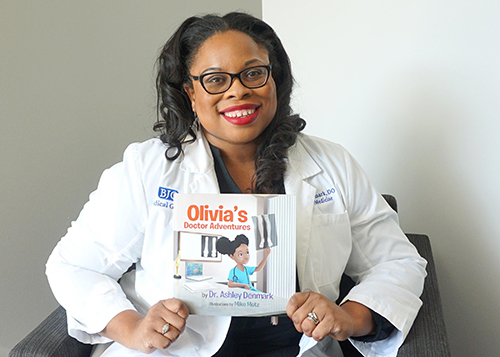
photo courtesy of Dr. Ashley Denmark
What can we expect to see from you in the years to come?
I see my future self still doctoring and caring for my patients. I always will be empowering more black and brown doctors with my virtual village on Instagram where I mentor over 30 thousand black and brown future doctors. I also plan to turn my children’s book Olivia’s Doctor Adventures, which introduces children to different fields of medicine into a series and launching a mini-med school for kids.
Featured Image by Michael Thomas

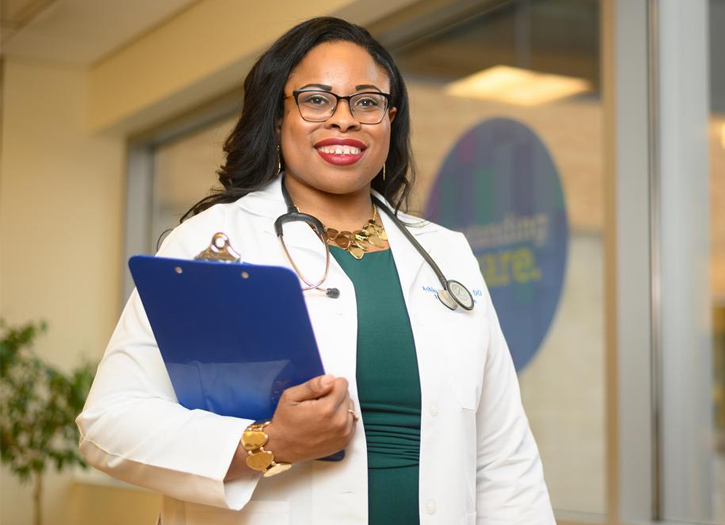
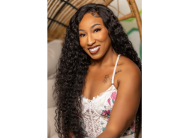

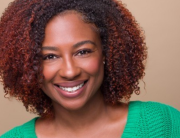


Add Comment
You must be logged in to post a comment.